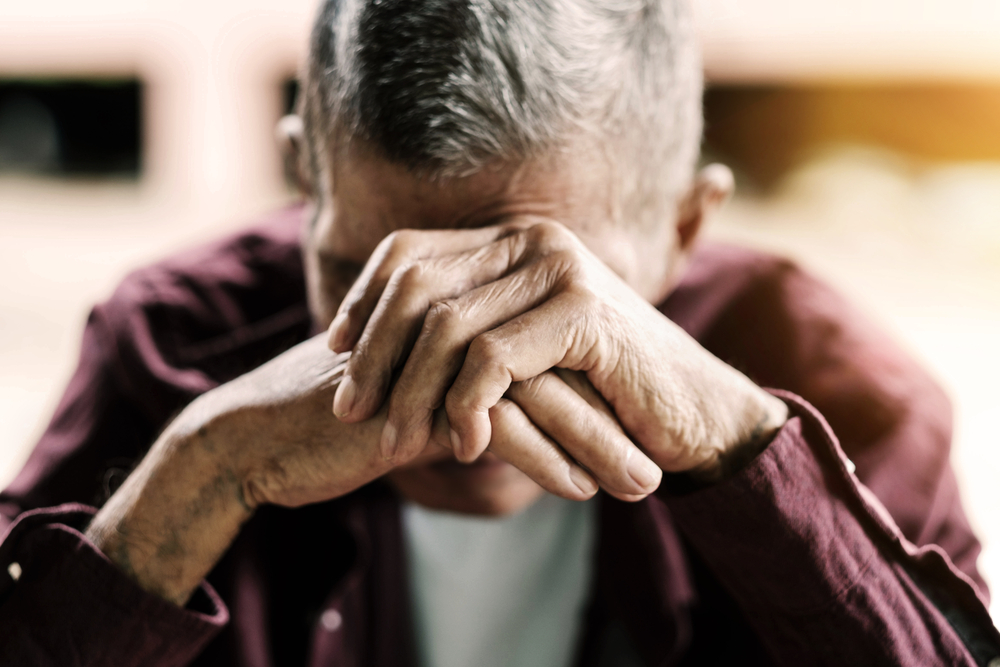Self-care can help manage a number of mental health problems, like depression, and even prevent them from getting worse.
On social media, the self-care hashtag is often accompanied by photos of massages, cocktails, or lavender scented bath bombs.
But self-care encompasses far more than Instagram might suggest. It's the entire process of looking after yourself, both mentally and physically. This includes eating and sleeping well, keeping active, enriching your social life and finding time to relax.
Depression can also lead to feelings of guilt and low-self worth. Indulgent images of self-care might leave you wondering: is self-care selfish?
But looking after your wellbeing is the least selfish thing you could do. Being in good mental and physical health can help you cope with life’s challenges and put you in a better position to support those around you.
Continue reading to learn about how self-care can help depression, in addition to the treatments for depression your doctor can offer you.
Self-care with a healthy diet

A balanced, healthy diet can make a big difference to how quickly you recover from depression, while improving your overall health.
For a healthy diet, you should:
- base your meals on starchy carbohydrates
- eat at least 5 portions of fruit and vegetables daily
- eat less saturated fat
- eat less sugar
- consume less salt (adults should have no more than 6g per day)
- drink 6-8 glasses of fluid a day (including water, lower fat milk, and sugar free drinks like tea and coffee)
- have breakfast every morning
You can start with small changes. Try swapping unhealthy snacks like crisps with unsalted nuts or fruit, or make time for breakfast in the morning.
Self-care with exercise
Research suggests that exercise may be as beneficial as antidepressants at improving symptoms of depression.
Physical activity encourages the release of endorphins, the chemicals in the body which trigger happy feelings.
Adults should aim to do 150 minutes of moderate intensity exercise every week (e.g. cycling, jogging or brisk walking).
If you haven’t exercised for a while, start small and build up to achieving 150 minutes a week. Even a brisk 10 minute walk can clear your mind and encourage relaxation.
You should try picking an exercise that you enjoy, or it will be harder for you to do it regularly. You could join a sports team, try classes at a local sports centre, or start walking or cycling to work.
Self-care with relaxation

There are many different relaxation techniques, some of which you may have already tried.
You might enjoy listening to music, reading, DIY crafts, spending time with a pet, or indulging a hobby. Or perhaps just make time for a warm bath (with or without a bath bomb).
Going outside and appreciating nature is also a good way to relax. You could visit a local park, or go for a walk around your neighbourhood. This has the added bonus of helping you get more active.
A busy life often leaves little time for relaxation, but you could try relaxing with mindfulness. Mindfulness is a therapeutic technique which involves being more aware of the present moment, your thoughts and feelings, and the world around you.
Mindfulness is recommended by The National Institute for Health and Care Excellence (NICE) as a way to prevent depression in people who have had 3 or more bouts of depression in the past.
You can practise this for a few minutes each day. Why not try being mindful on your way to work, during your lunch, or just before you go to bed?
Self-care by socialising

Connecting with people can make you feel more confident and give you a different perspective on things. Try to communicate with friends and family regularly, even if it's just over the phone.
You can meet new people by joining clubs you're interested in, or by attending community events. This way you can share your interests with like-minded people, and forge new friendships.
Self-care by sharing your problems
When you're struggling with mental illness, it can be useful to share what you're going through with others. This can give you support and insights into your depression.
Evidence suggests that talking can improve symptoms of depression, and your ability to deal with stress.
If you don't feel like sharing with the people close to you, you could try joining a self-help group to meet with others who've had similar experiences to you.
This can encourage you to feel less isolated, increase your confidence, and learn about new ways to cope.
You can ask your doctor about self-help groups for people with depression in your area.
Some individuals might not feel comfortable talking about their mental health. In these circumstances, try writing your problems down, or channeling them into something creative, like poetry, drawing, crafts or painting.
Self-care by monitoring your mental health
Self-care also includes taking an active part in looking after your mental health.
You can start a mood diary to track your feelings and identify your triggers. This way, you can recognise difficult situations and prepare yourself for them.
Try to look out for warning signs that your depression might be returning or getting worse, so you can get support as soon as possible.
It's also good to tell others what you've found useful in the past. This can aid your doctor in deciding what treatments might suit you best. Your family and friends may also understand how to support you better.
Self-care at work
Working too much may be the cause of depression for some people, and vice versa, depression may affect your ability to do your job.
It's important to avoid too much stress, including work-related stress.
If you think work stress may be triggering your symptoms, consider working shorter hours or on a more flexible schedule if possible.
You may need time off work to recover. However, there’s evidence that suggests taking very long periods of time off work can make depression worse.
Avoid smoking, drugs and alcohol

You might find that cigarettes and alcohol initially help your depression, but they can make your symptoms worse over time.
There's also evidence that suggests smoking cannabis can:
- make symptoms of depression worse
- make you more tired and uninterested in things
- increase the likelihood you'll relapse into depression
- reduce your response to antidepressants
- make you more likely to stop using antidepressant medication
- make you less likely to recover
You can ask your doctor for support and information if you feel you need professional support for drinking, smoking or drugs.
Treating depression
Visit your doctor if you're ever worried about depression, or if you've experienced symptoms of depression for most of the day, everyday for more than 2 weeks.
It’s especially important to speak to your doctor if you:
- have symptoms of depression that aren’t improving
- find your mood affects your work, other interests and relationships with your family and friends
- have thoughts of suicide or self-harm
Your doctor will be able to work with you to find the best way to manage your symptoms and problems.
Treatment for depression depends on the type of depression you have. It can be mild, moderate, or severe.
For mild depression, your doctor may recommend ‘watchful waiting’. This involves waiting to see if your depression improves on its own, while monitoring your progress. You'll be seen by them 2 weeks after the first appointment.
They may also refer you to an exercise or self-help group.
You can ask your doctor about depression self-help groups in your area, or try sharing your problems with family and friends.
You might also be interested in online cognitive behavioural therapy (CBT).
For more private support, you could try self-help books or guides.
For mild depression that isn’t improving and moderate depression, talking therapies like CBT can be beneficial.
A doctor may advise taking antidepressants to help relieve moderate to severe depression. Speak to your pharmacist or doctor for further guidance before taking any antidepressents.
A doctor may recommend a combination of talking therapy and antidepressants, as a combination of treatments is usually more effective than just one treatment alone.
For severe depression, you may be referred to a specialist mental health team for intensive talking treatments and other medications.
Conclusion
Self-care can play an important role in helping individuals recover from depression. It can make lifestyle changes more manageable by breaking them down into achievable goals.
Whether it’s going on more walks, or reserving time to relax, a small change can make a big difference to the quality of your life.
If you're ever struggling with your mental health, speak to your doctor. A lot of people delay seeking help for depression, but it’s best not to put it off. Addressing the issue can be daunting, but there's support available. Don't suffer, seek help.




